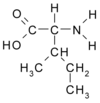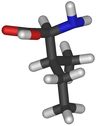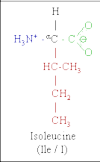Q: What exactly are amino acids? Which ones should I take pre- and postworkout to make the best muscle gains?
A: Amino acids are the building blocks of protein, and proteins are the building blocks of muscle mass. To make the most of your weight training, you need to not only eat plenty of protein but also get in the right balance of amino acids to make sure you're providing your body with the best tools for growth.
"For muscle growth, the most important thing is to make sure you're getting in all the protein you need--at least 1 gram of protein for each pound of bodyweight every day," says MUSCLE & FITNESS Science Editor Jim Stoppani, PhD. "After that, focusing on specific amino acids, particularly around the time when you train, will help improve your results.
"Some amino acids are essential and some are nonessential," Stoppani continues. Essential amino acids are those that your body can't produce from other amino acids. Nonessential aminos can be made from others. Stoppani explains how this works: "Basically, some of these nonessential aminos are so crucial to body function that your body has created the ability to make these aminos from others." Key essential amino acids are valine, leucine, isoleucine, tryptophan and methionine. Key nonessential amino acids include glutamine, arginine, tyrosine and alanine.
So which aminos should you take before and after your workouts to improve muscle-building results? Stoppani recommends the following:
Glutamine: Take 5 grams of glutamine both before and after you work out. "Glutamine provides energy for your muscles during training, and it helps control fatigue-producing chemicals, allowing you to lift more weight or pump out more reps," Stoppani explains. The after-workout dose ensures a surplus of glutamine to promote growth. "In addition, glutamine is an important cell volumizer, enhancing growth and reducing muscle breakdown," says Stoppani.
BCAAs: The branched chain amino acids (BCAAs) are valine, leucine and isoleucine. Take 5-10 grams of BCAAs both before and after your training sessions. "BCAAs are broken down as fuel and will provide your muscles with energy to power your workouts," Stoppani says. "They'll also help prevent your body from pulling BCAAs out of storage--in other words, tearing down your muscle mass." After your workout, BCAAs are necessary for protein synthesis to occur, and so they help facilitate recovery and growth postworkout.
Arginine: Take 3-5 grams of arginine before your workouts to help increase blood flow to deliver oxygen, nutrients and anabolic hormones to your target muscles during workouts.
Other aminos are helpful at other times of day, but before and after workouts are the critical times for making the most of your supplementation with these particular aminos. Follow Stoppani's advice, and you'll improve the results from your training.
COPYRIGHT 2005 Weider Publications
COPYRIGHT 2005 Gale Group




